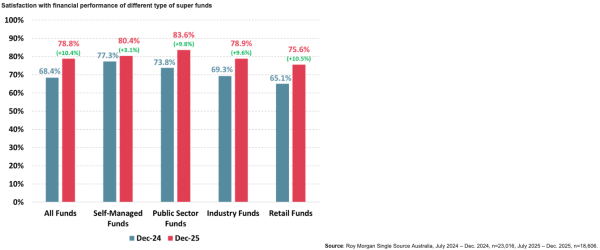Major super funds win big on risk reserves

Australia’s largest superannuation funds have had a significant win with the Australian Prudential Regulation Authority (APRA) deciding that they will have to reserve less money than smaller funds within their Operational Risk Reserve to meet their Operational Risk Financial Requirement (ORFR).
The APRA decision will free-up billions of dollars across the biggest superannuation funds because instead of being required to reserve 0.25% of their funds under management (FUM) they will be able to reserve just 0.175%.
Indeed, APRA has published a table in which funds with less than $30 billion will be required to adhere to the existing 0.25% reserve, while those with $30 billion to $165 billion will be required to reserve 0.20%.
This means that major funds such as AustralianSuper and Australian Retirement Trust will be able to free up substantial capital from the middle of next year.
Outlining the move, APRA also signalled that it was going to trust funds to follow guidance rather than forcing them to make a specific request.
“Given this change, and noting APRA’s expectation that RSE licensees will determine their ORFR target amount in line with the guidance, APRA is no longer proposing that RSE licensees must engage with APRA prior to adopting a target amount lower than 0.25% of FUM,” it said.
“APRA’s approach is intentionally simple, including an intent to reduce regulatory burden on RSE licensees in circumstances where there may not be commensurate prudential benefit.”
However, APRA noted that it has retained the requirement for RSE licensees to notify APRA prior to making a material change to the ORFR target amount.
“Finally, it remains the case under SPS 114 that APRA may require an RSE licensee to meet an ORFR target amount determined by APRA within a specified time where the RSE licensee’s target does not appropriately reflect the operational risks of the RSE licensee’s business operations,” the regulator said.
In its preamble to outlining the changes, APRA said it “has observed that, despite having built fully funded operational risk reserves, many RSE licensees have been reluctant to call on these reserves, even where they are entitled to do so.
“Instead, RSE licensees are using other reserves or external sources of capital following an operational risk event,” it said.











APRA looking after their union fund buddies yet again.
It will take more than 0.075% to cover the massive losses on unlisted assets over the past year.
Aust super and cbus’s default options have underperformed their respective indexes by around 6% according to morningstar.
Considering unlisted investments represent a relatively small portion of their asset allocations, the write downs on some of these investments must be of biblical proportions.